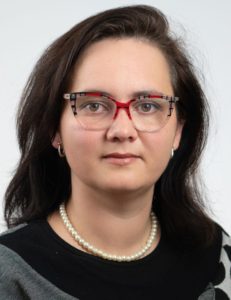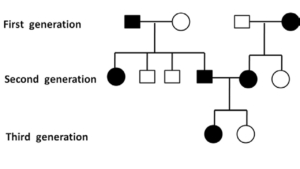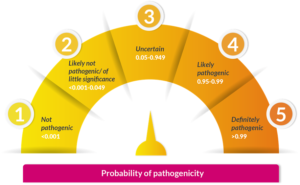Article No. 322
21 February 2020
One thing is plainly clear, for most people genetics is a difficult and complex science.
Genetics plays a big part in making us who we are and for most of the time, most of us give it little thought. But in an age where more and more is possible and there are more and more ways to communicate information, it is getting harder to avoid the subject.
But understanding it , that is another matter.

Dr Beata Lipska-Zietkoewicz
Recently ERKNet featured a talk by Dr Beata Lipska-Zietkoewicz from Medical University of Gadansk ,Poland, in its webiner programme. The title of the talk was Genetics -Basic concepts and testing and in a little over 30 minutes Beata covered and explained the subject to a clinical audience. Her talk can be heard in a recording on the ERKNet website at this LINK.
Here is some of what the alliance learned from the talk to be fundermental to genetics and its testing.
- not all medical conditions existing at /before birth ( congenital) are inherited from the parents but all inherited conditions are congential, you are born with it.
- genetic testing is different from other clinical tests e.g. biopsies
- genetic testing is multi step process
1. identify at risk patients
2. Pre-test counselling
3, Provide informed consent
4. Select, and other, test
5. Disclose results
6. Provide post test counselling follow up
- There are new professionals known as geneticists or genetic counsellors
- Geneticists; approach is different to clinicians. The focus is family , DNA , mutations predicting risk, counselling
- Testing can be diagnostic, predictive ( including minors) ,reproductive risk (carrier), prenatal/preimpantation testing
- Genetic counselling is a communicative process which deals with the human problems associated with the occurence or risk of occurrence of a genetic disorder in a family
- Genetical counselling takes account of family history, personal story, clinical examination and maybe additional tests
- Family history is described by the pedigree using the standard symbols

- There are modes of mutation inheritance
– autosomal dominant- affects all generations enough to affect one offspring, could be a new mutation
– autosomal recessive – May not affect all generations
– x link dominant – disease will only happen in males if father affected , but both if mother.
– x link recessive – disease will only happen in males
- The term “Mutation” is misleading and is being replaced by “Variant” with an emphais on whether it is disease causing or probable disease causing.

American College of Medical Genetics probability of pathogenicitity model
- Definitely and likely disease causing variants found , disease should be treated.
- Undetermined significance variants need to be watched
- Diseas varients can be inherited from both parents “homozygote“( in doctor’s speak) or just one “heterozygote“. These are “compounded”or “doubled” if there are two different variants.
- Penetrance in a family with variants is the percentage that have experienced disease symptoms. Expressivity in that family describes how severe the disease has been.
- A normal result does not rule out the diagnosis of a genetic disorder since some DNA abnormalities may be undetectable by the applied technology.
- Test results should always be interpreted in the context of clinical findings, family history and other relevant data.

